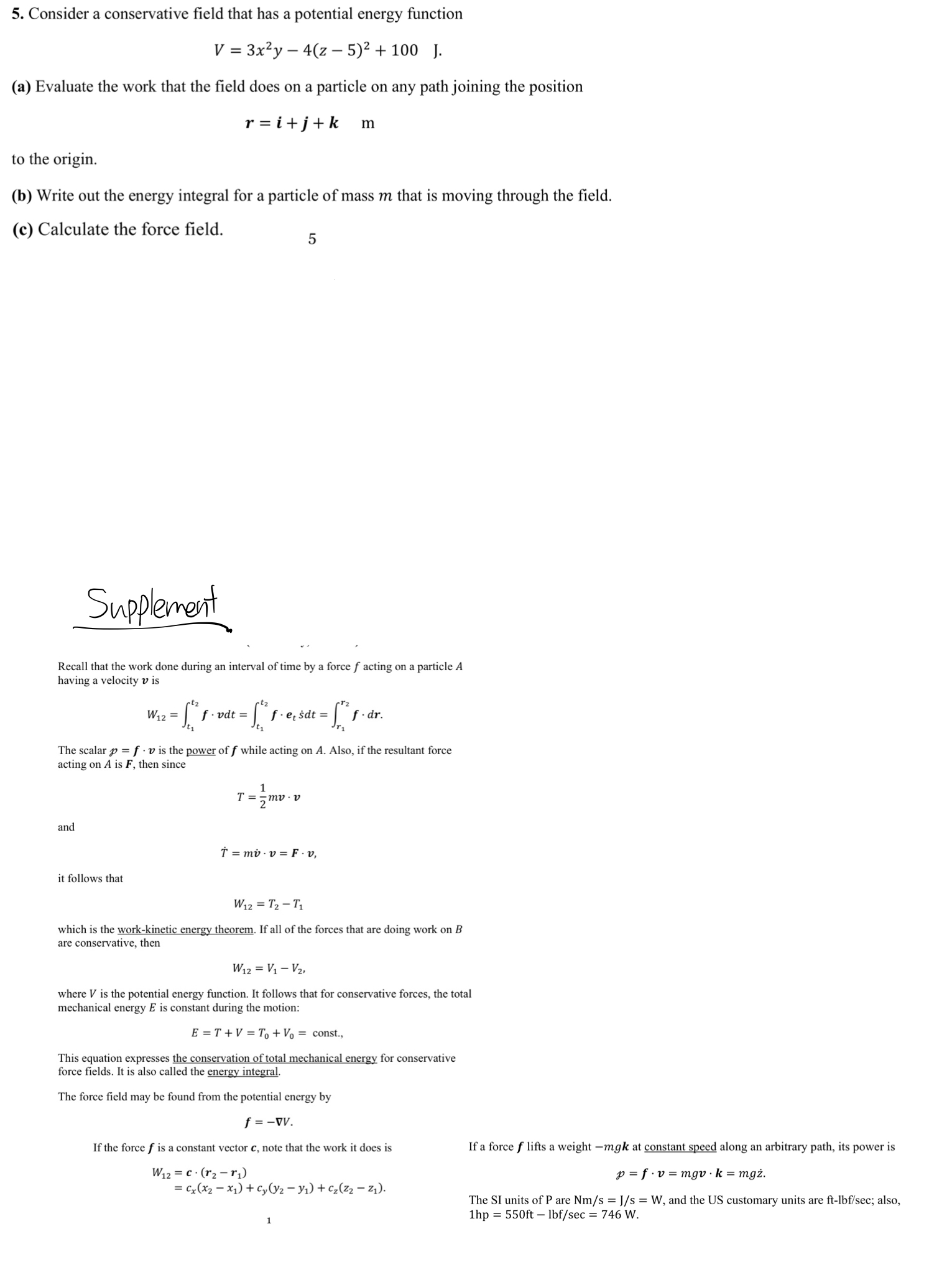Answered step by step
Verified Expert Solution
Question
1 Approved Answer
5. Consider a conservative field that has a potential energy function V = 3xy - 4(z -5) + 100 J. (a) Evaluate the work

5. Consider a conservative field that has a potential energy function V = 3xy - 4(z -5) + 100 J. (a) Evaluate the work that the field does on a particle on any path joining the position r = i +j+k m to the origin. (b) Write out the energy integral for a particle of mass m that is moving through the field. (c) Calculate the force field. 5 Supplement Recall that the work done during an interval of time by a force f acting on a particle A having a velocity v is W12 = - [" 1 - vdt = [" f.esdt = [1 T2 -f r1 f.dr. The scalar p=fvis the power off while acting on A. Also, if the resultant force acting on A is F, then since and it follows that T = 1 2 mv.v T=mv v = F v, W12 = T2-T1 which is the work-kinetic energy theorem. If all of the forces that are doing work on B are conservative, then W12 = V1-V2, where V is the potential energy function. It follows that for conservative forces, the total mechanical energy E is constant during the motion: E=T+V=To + V = const., This equation expresses the conservation of total mechanical energy for conservative force fields. It is also called the energy integral. The force field may be found from the potential energy by f = -vv. If the force f is a constant vector c, note that the work it does is W12 c (r2 r) =Cx (x2-x1) + Cy (Y2 - Y1) + C (Z2 Z). If a force f lifts a weight -mgk at constant speed along an arbitrary path, its power is p=fv=mgv k = mg. The SI units of P are Nm/s = J/s = W, and the US customary units are ft-lbf/sec; also, 1hp 550ft-lbf/sec = 746 W.
Step by Step Solution
There are 3 Steps involved in it
Step: 1

Get Instant Access to Expert-Tailored Solutions
See step-by-step solutions with expert insights and AI powered tools for academic success
Step: 2

Step: 3

Ace Your Homework with AI
Get the answers you need in no time with our AI-driven, step-by-step assistance
Get Started


